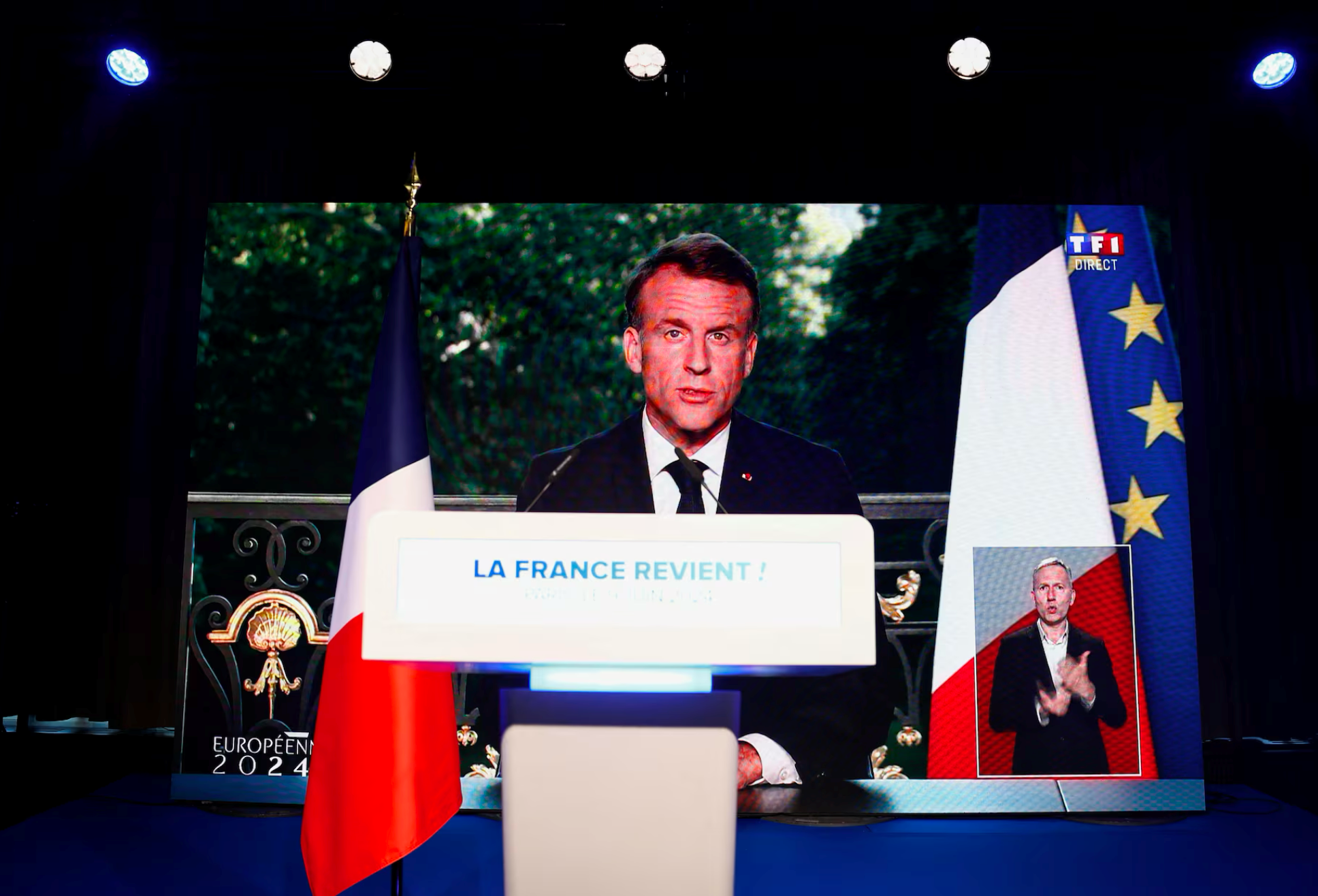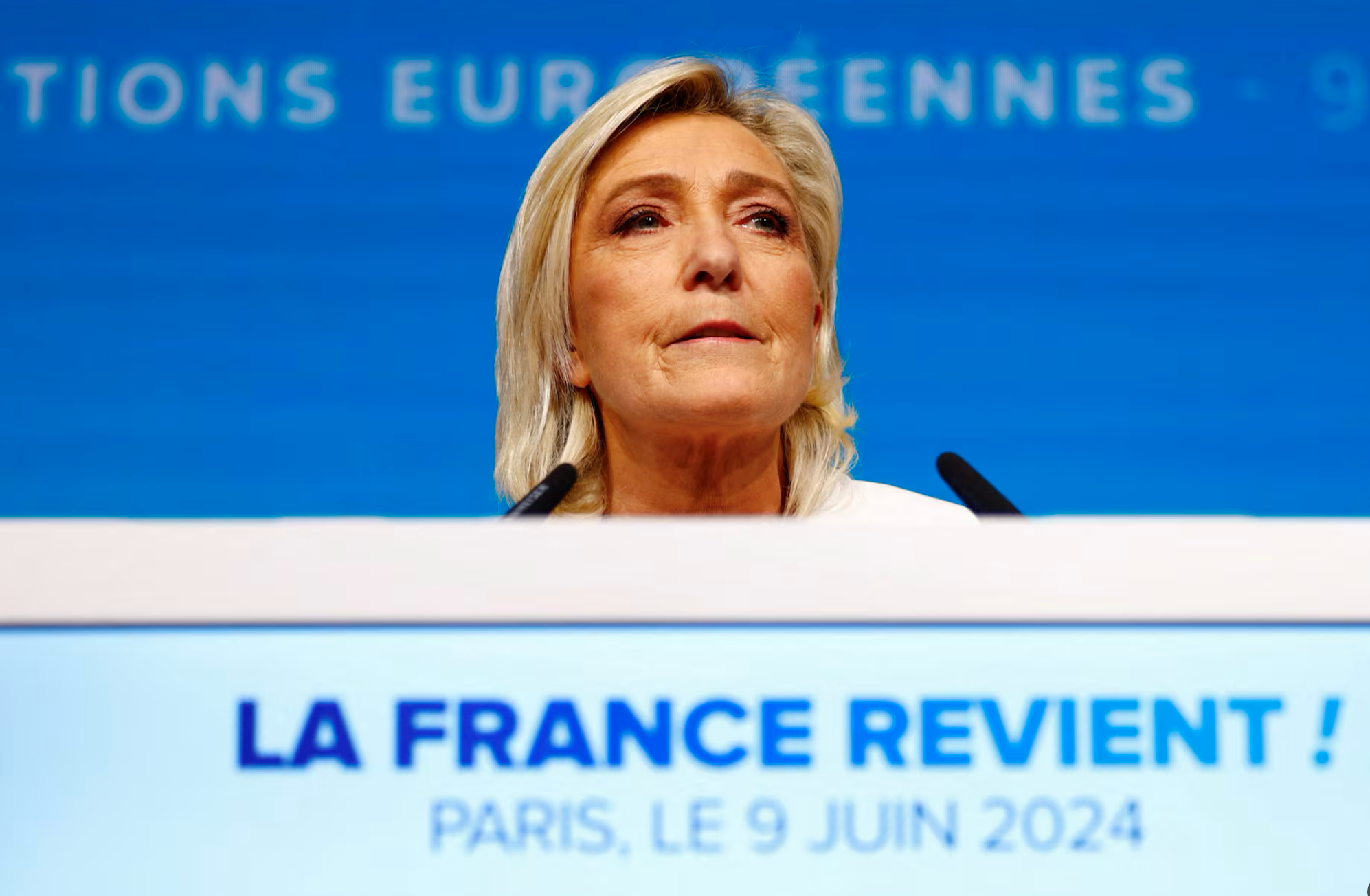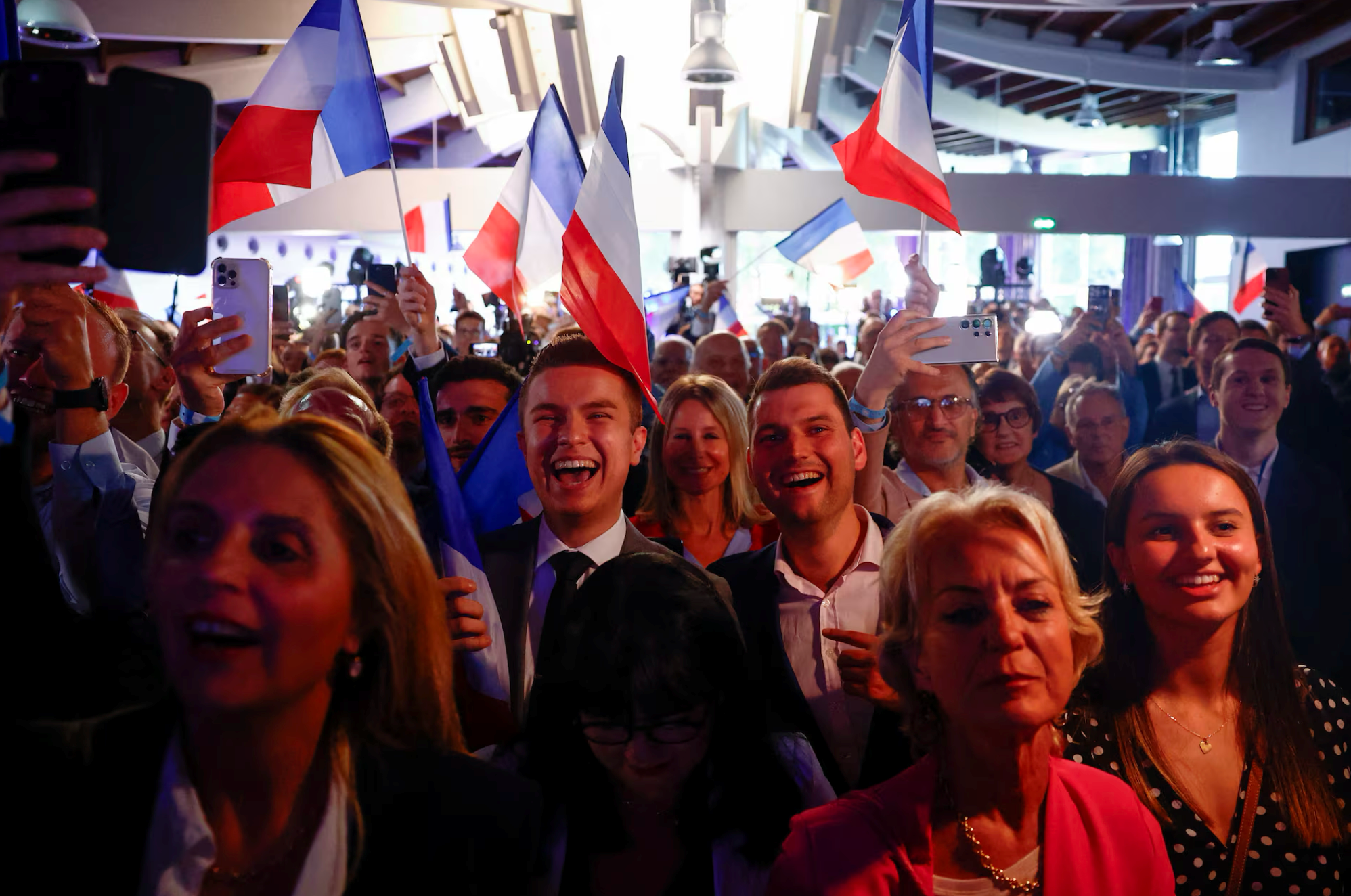President Macron's 'dice roll' and the political earthquake in France
French President Emmanuel Macron rolled the dice on his political future on June 9, calling for early parliamentary elections later this month.
The move comes after he was defeated by Marine Le Pen's far-right party in the European Union vote.
Unexpected move

According to Reuters, Mr. Macron's shocking decision has caused a political earthquake in France, creating an opportunity for the far-right to take real political power after many years on the sidelines and possibly making Mr. Macron's presidential term "in name only" when there are still 3 years left before the end of this term.
That is because, if Ms. Le Pen's National Rally (RN) party wins a majority in parliament, Mr. Macron will have almost no influence on domestic issues.
President Macron said the EU election results were a blow to his government and something he could not ignore. In a speech to the nation less than two months before Paris hosts the Olympics, he said the parliamentary elections would be held on June 30 and the second round on July 7.
“This is a moment of clarity,” Mr Macron said. “I have heard your message, your concerns and I will not ignore them… France needs a clear majority to act calmly and harmoniously.”
Following President Macron's announcement, hundreds of anti-far-right protesters gathered at Place de la Republique in Paris, waving flags supporting left-wing and green parties and chanting against the RN.
Led by 28-year-old Jordan Bardella, RN won about 32% of the vote in the June 9 vote, more than double the 15% of Mr. Macron’s side, according to exit polls. Meanwhile, the Socialist Party also came close, with 14%.
Ms Le Pen, widely seen as the frontrunner for the 2027 election in which Mr Macron cannot run, welcomed the French president's decision.
“We are ready to take power if the French people put their trust in us in the upcoming national elections,” she told a rally.
It should be noted that Mr Macron's Renaissance Party currently has 169 lawmakers in the lower house, out of a total of 577; while the RN has 88.
If the RN wins a majority, Mr Macron will still lead defence and foreign policy, but will lose the right to set the domestic agenda, from economic to security policy.
Commenting on the president's move, Green Party MP Sandrine Rousseau said: "Emmanuel Macron is a poker player, we saw that tonight."
"Living together" is not very pleasant

Teneo, a consultancy, said that “Mr Macron has called an election he could lose.” The firm said that “his ultimate goal may be to deliver an instant victory for the RN to expose its lack of experience in government and force it to face painful political decisions ahead of the 2027 presidential election.”
Olivier Blanchard, a former International Monetary Fund official now working at the Massachusetts Institute of Technology, assessed that Mr. Macron tried his best in a "weak position".
“Either the incoherence of the RN’s program becomes clear during the campaign and the party loses the election. Or the RN wins, takes over and quickly messes things up,” Blanchard wrote on X.
According to Reuters, Mr. Macron's bet is similar to the move of Spanish Prime Minister Pedro Sánchez when Mr. Sanchez called for an early national election last year after the far-right defeated his party in local government elections.
Sanchez managed to retain power but not before months of feuding with regional parties and a controversial amnesty deal for Catalan separatists.
France has known periods of so-called “coexistence” in the past, when the president belonged to a different political party than the one with a majority in parliament. In such cases, the prime minister of the majority party would become France’s top domestic decision-maker.
During the most recent such period, from 1997 to 2002, President Jacques Chirac played second fiddle to Socialist Prime Minister Lionel Jospin. The euro slid to its lowest level in about a month in early Asian trading, reflecting the uncertainty.
Back to the present story, Mr. Macron's decision underscores what has been a grim night for centrist parties across Europe, as Eurosceptic nationalists made the biggest gains in European Parliament elections.
The succession battle begins to heat up.

Ms Le Pen's resounding electoral performance, a 10 percentage point increase on her result in the 2019 EU elections, is likely to attract conservative rebels to the RN, a party with clear momentum.
On the evening of June 9, Ms. Le Pen’s niece, Marion Marechal, a political ally of Eric Zemmour and his far-right Reconquete party, said she was prepared to meet her aunt to discuss a pact. “A right-wing alliance seems more necessary to me than ever,” Marechal said.
Ms Le Pen's rise is also likely to fuel a centrist succession battle to replace Mr Macron.
Political sources say several big names – including Interior Minister Gerald Darmanin, former Prime Minister Edouard Philippe, current Prime Minister Gabriel Attal and Finance Minister Bruno Le Maire – are all keen on taking the top job.
“We will have to ask ourselves and explain to the French why we have not been able to listen to them enough,” Minister Darmanin said, commenting on Mr Macron’s announcement.
The results on June 9 also saw the rise of the center-left in France, with Socialist candidate Raphael Glucksmann, a moderate, winning about 14%. His performance will give the Socialists a boost after they suffered defeat in the 2017 election to Mr. Macron.


